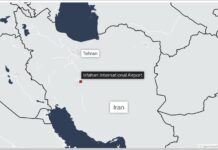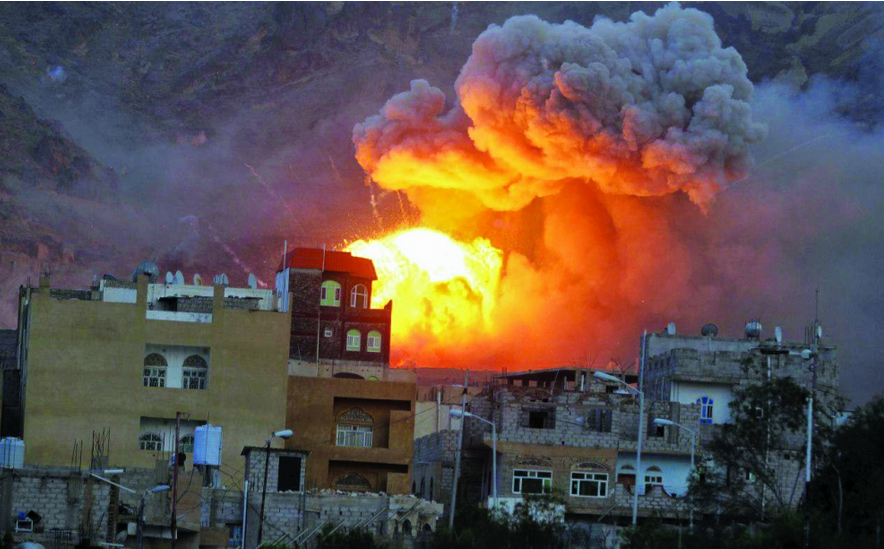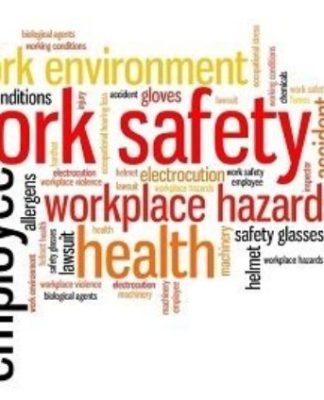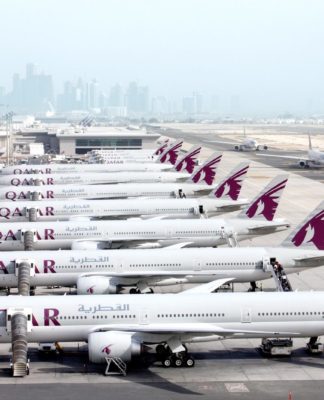Violations by Riyadh and Abu Dhabi are systematic, not isolated incidents
A report by Britain’s Middle East Eye website criticized the British government’s continued legal approval to continue selling arms to Saudi Arabia in its brutal campaign in Yemen. The UK government’s announcement of the resumption of a license to export arms to Saudi Arabia and its allies is seen as a nail in the coffin of thousands of other Yemenis, as the war in their country extends to its sixth year.
The report, which was translated by Al-Sharq, indicated that the Saudi-led coalition in which the UAE is involved is involved in violations of international humanitarian law and not “isolated incidents” where civilian targets and infrastructure are targeted in the Yemeni war.
The report said that in June last year, the Court of Appeal held that the government’s policy to export arms was illegal, as it had failed to assess whether the Saudi-led coalition had committed violations of international humanitarian law in Yemen. The court ordered the government to legally re-make its decisions, this time.
After more than a year of silence on this issue, the British government has announced that its revised methodology now takes into account past allegations of violations and treats all potential violations as actual violations.
UK policy is based on the risk of weapons misuse, and risk-based analysis is assumed to be preventive, so a situation that treats potential violations as violations is a good start.
However, the government engaged in two steps of legal and political maneuvers to reach the conclusion that there is no pattern of potential violations, and therefore there is no apparent risk, which means that weapons licenses can be resumed.
The report continued: The British Ministry of Defense says that on July 4, 2020 it considered the details of more than 500 “alleged cases of violations or violations of international humanitarian law in Yemen.” The British government has established a position to facilitate ongoing arms exports and demand compliance with international law.
While there is a wide range of evidence in the public domain that indicates that coalition attacks are widespread and continuing against civilian targets and infrastructure. One of the most recent reports is a collaborative effort between the Yemeni Human Rights Organization and the Global Legal Action Network aimed at “giving the government everything it needs to accurately assess the risk of future violations.”
However, the British government routinely failed to engage in any meaningful way with evidence provided by civil society actors.
There are challenges in identifying patterns and making decisions about whether attacks are systematic or indiscriminate – and many organizations working to harm civilians could have provided lessons on how to identify patterns if the government is in a state of reflection.
Machinations aggravated
The report considered that the British government did not want to find the truth – because this would mean that it would have to suspend arms sales -. Instead, they declared their satisfaction that “there is no clear danger that the export of arms and military equipment to Saudi Arabia may be used in a serious violation of international humanitarian law” and issued a comprehensive statement on the resumption of licenses, all of which are being exacerbated by the continued reliance on secrecy. It appears that the British Foreign Office considered “the full range of information necessarily sensitive and confidential”. This is old ground and served as an essential component of government defense in legal proceedings.
Risk assessment policy
The report highlighted that government policy to risk assessment, which is assumed to be preventive – so if there is evidence that indicates a potential breach, it should be considered in a preventive manner.
The government has refused to deal, let alone refute, a wide range of credible allegations in the public domain that point to violations of international law, and instead relies on ostensibly superior classified information that the public has no right to deal with.
It now refuses to publish the information on which its revised methodology was based – indicating that it has published decision-making standards and the quarterly lists of the licenses granted. However, what is missing is any fundamental explanation for the rationale for the decisions actually taken: there is often a stark gap between the government’s publicly stated position and actual licensing practices. The report went on to say that the British government announced that the arms license for the Saudi-led coalition could be appealed and the legal issue was disappearing. The government will undoubtedly use the apparent nature of legal approval to continue to whitewash Saudi Arabia and try to avoid continued criticism.
It was recently announced that the committees concerned with arms export control, chaired by Representative Marc Garnier, would be re-established on the understanding that the committees ’role was to scrutinize government policy and practices. They have not published a report in the past two years. However, with the DFID merging with the Foreign and Commonwealth Office, the voices of development actors are less likely to be heard on the table.





























![List Of Profession Eligible For Family Visa In #Qatar2022 [Salary Occupations]](https://welcomeqatar.com/wp-content/uploads/2022/07/maxresdefault-1-324x400.jpg)
